Community Access to Justice: Ten Years of the North Suburban Legal Aid Clinic
The North Suburban Legal Aid Clinic works to provide high-quality, equitable legal services to individuals in need. We’re proud to work with NSLAC and Wallace Miller partner David A. Neiman to support the organization’s tenth anniversary event in May 2025.
NSLAC’s 10th Anniversary
Celebrating the tenth anniversary of its founding, the North Suburban Legal Aid Clinic (NSLAC) will be holding a fundraiser on May 3rd, 2025 in Libertyville, Illinois. The event is aimed at local leaders, the legal community in Chicago, Lake County, and Cook County’s northern suburbs, and other supporters of NSLAC and its goals. Funds will go towards promoting free legal services for community members who need them most.
Wallace Miller will be donating to the event to celebrate the organization’s exceptional work and help raise funds for their advocacy for years to come. Find out more about the event at their website.
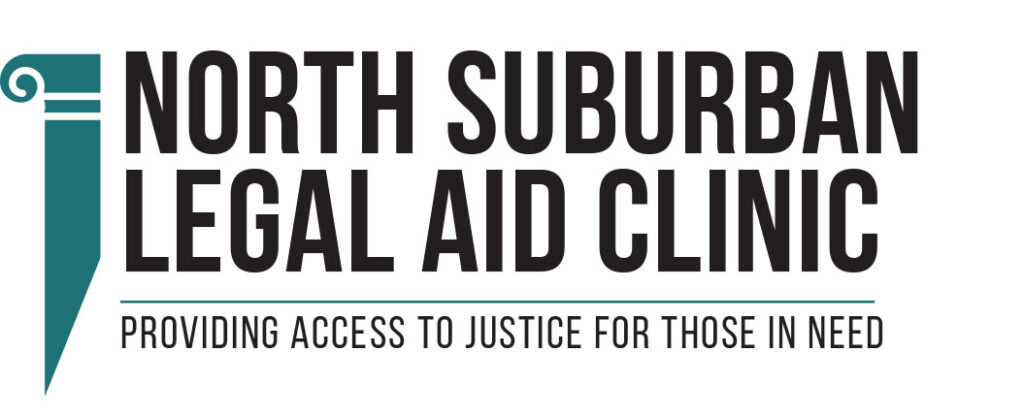
About the North Suburban Legal Aid Clinic
The North Suburban Legal Aid Clinic (NSLAC) provides free legal help to members of its community who would otherwise be unable to afford them. Working in Lake County and the north suburbs of Cook County, their goal is to provide accessible, high-quality, equitable representation and connect individuals to meaningful legal aid.
The legal system can often be overwhelming, particularly for individuals who are low-income or otherwise vulnerable. NSLAC serves clients from diverse backgrounds, heritages, traditions, values, and behaviors and focuses on listening to and respecting what each client wants. They work with legal and nonprofit partners to provide high-quality, thorough, confidential, and compassionate legal services, including pro bono legal aid and established support in designated courthouses.
NSLAC free legal services: Immigration, housing, and domestic violence
NSLAC focuses its legal help on three areas: domestic violence, housing, and immigration.
- In their domestic violence focus, the organization represents and assists survivors and their children. In addition to providing free legal representation, they have a designated support team and assist in connecting clients to resources before, during, and after the litigation process.
- Their housing litigation area of service is founded on the idea that housing rights are crucial to a stable, productive life. NSLAC represents tenants, collaborates with local organizations in community partnerships, and helps clients secure resources for themselves and their families.
- The immigration team at NSLAC helps community members navigate the complicated immigration process. They conduct community outreach and Know Your Rights presentations, help immigrants secure necessary resources, and represent immigrants in court.
In addition to the dedicated NSLAC staff, the organization works with local law firms and attorneys who volunteer their time pro bono. Interested in volunteering to provide accessible legal aid? Get involved at the NSLAC website.

History of NSLAC: Legal help for all
NSLAC was founded in 2015 as the Highland Park-Highwood Legal Aid Clinic. Serving residents of Highland Park, Illinois and Highwood, Illinois, it provided free legal aid to 84 clients in its first year or operation.
In 2018 it relocated and expanded its scope of services, and in 2019 it changed its name to the North Suburban Legal Aid Clinic. The organization earned a Guidestar Platinum Seal of Transparency, the highest level available, demonstrating their commitment to openly sharing information on their goals and operations.
As of its tenth year of operation, NSLAC has served more than 10,000 individuals in the north suburban areas of Lake and Cook Counties. Read more about the organization’s success and their mission on their website.
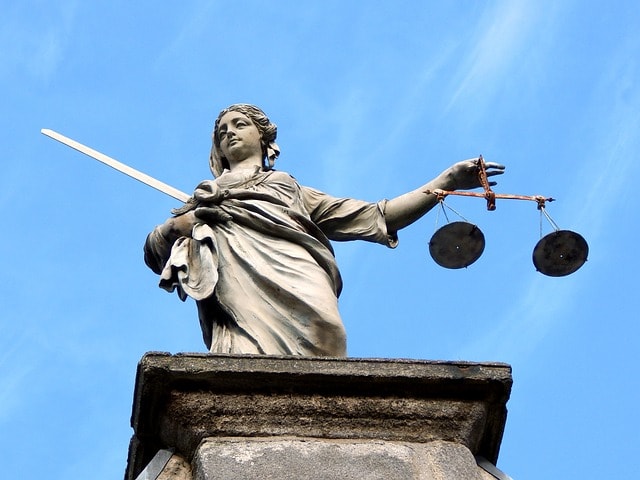
Image by Pixabay.
Leveling the playing field with David A. Neiman
Wallace Miller attorney David A. Neiman has been a proud supporter of NSLAC since getting involved in 2016. Joining shortly after the clinic was founded, he helped oversee its expansion and transition as chairman of the Board in 2019. “It was an honor to see a small legal aid clinic grow and blossom and I take great pride to have been affiliated with that organization at that time,” David says. “It’s my goal to level the playing field by giving everyone, regardless of their background, access to our judicial system in their time of need.” Hear more from David in his interview on our blog.
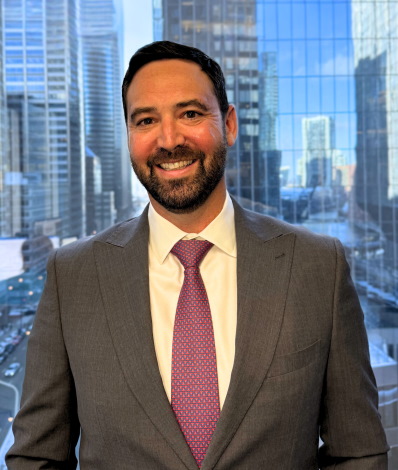
Partner David A. Neiman
Community involvement at Wallace Miller
Everyone at Wallace Miller, from attorneys and paralegals to our prelitigation department and administrators, is committed to fighting for justice for those wronged by corporations and flawed systems. That’s why we operate on a contingency fee model with no up-front fees—none of our clients pay anything for our representation unless we win their case through a verdict or settlement.
Our commitment to advocacy and expanding access to justice extends beyond the courtroom. This year, we’ve been proud to highlight and support our lawyers as they make a difference in our community. In addition to his contributions to NSLAC, David A. Neiman works extensively with Lambs Farm, an organization supporting adults with developmental difficulties. Wallace Miller partner Molly Condon Wells serves on the Board of Lawyers Lend-A-Hand to Youth, a nonprofit that connects at-risk youth in the Chicago area to tutoring assistance, and works with the Women’s Bar Association of Illinois to connect female lawyers with their peers in the law. Attorney Jessica A. Wieczorkiewicz is co-chair of the New Lawyers Division Education Committee for the Advocates Society, an association of Polish American attorneys that provides legal aid. And last September, our team turned out for Race Judicata, a 5K raising funds for Chicago Volunteer Legal Services.
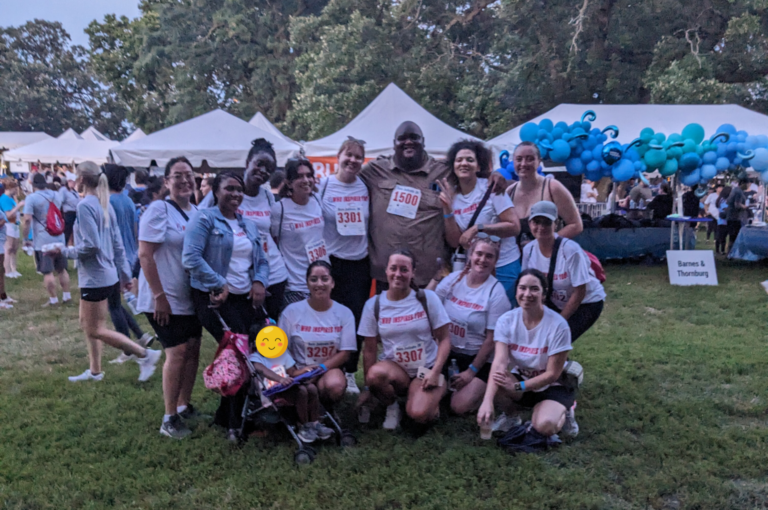
Wallace Miller at Race Judicata.
As plaintiffs’ advocates, we know how important it is to stand up for vulnerable individuals. On our cases and beyond, our team leverages the legal system to help people who need it and fights to improve the legal system so that it is available to everyone.
Searching for legal aid? Find out more about how to access free legal services through NSLAC.
Meet Attorney Rebecca Monen
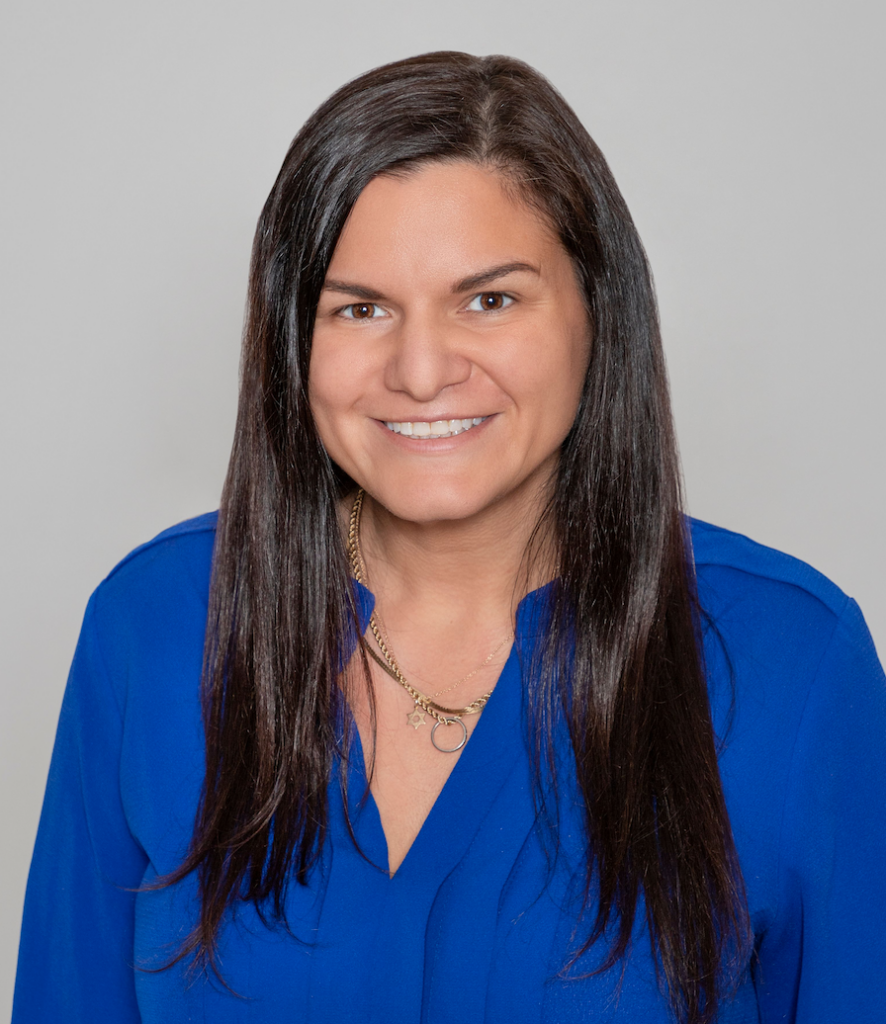
Attorney Rebecca Monen
Rebecca Monen joined the Wallace Miller team as a personal injury attorney in 2025. Before becoming a lawyer, she worked in the nonprofit sector for ten years with a focus on youth advocacy. From her nonprofit work to her law practice, Rebecca has dedicated her career to helping people seek justice and move forward from harm.
You initially worked in the nonprofit field. Tell me a little bit about that.
I went to college at IU in Indiana and then I moved to Boston for AmeriCorps, which is kind of like the domestic version of the Peace Corps. That’s how I got started working in nonprofits. I was doing what’s called development, which is fundraising and soliciting new donors and creating events and all of that stuff, as well as marketing communications.
I moved to Chicago in 2011 and worked in nonprofits up until I went to law school, mostly youth-based nonprofits. I focused my career on helping people, but after about a decade in the nonprofit field, I had reached a director-level position, and I felt like I could do more in another field.
I knew that whatever that different thing was, I still wanted to help people. I was a political science major and I’ve always been interested in history and politics. I always wanted to go to law school, but I never felt like that was for me—that was for other people. I don’t have attorneys in my family, I don’t come from “the right side of the tracks,” I didn’t know anything about the legal field. So for me, it always felt like something only other people could do.
But with a whole decade of professional experience behind me, I wasn’t intimidated the way I was when I was younger. I thought, “Well, why not me? I’m smart, I want to do good, I want to learn this, I want to get this degree. The only impediment is me. I want to do it, so let’s do it.” And now here we are.
What was it like making that transition?
It was hard and scary. You really uproot your life. I studied and took the LSAT and did the applications. Then because I was doing the part-time evening program, law school took me four years while also working full time. And then I had to study for the bar. So it was over half a decade for me between deciding I wanted to go to law school and becoming a lawyer.
I’m still young in my legal career, and I’m coming in and having to learn new things—which is exciting, but it’s also scary. With that said, I am glad I waited to go to law school until later. I was a much better student and I have a much better handle on things. And now with more than a decade of experience working with people who do need advocacy and support, I can bring that understanding into the way I want to be an attorney.
How does your previous work in nonprofits help in being a lawyer?
Because of my previous career, I’ve had the opportunity to interact with all different types of people. Working in fundraising meant that I had to communicate with board members and high-level donors, but I was also talking to the people who run the programs and going to their events, and hanging out with the kids we serve and learning how to talk to their parents, and then being able to switch and talk to the donors again about the experience. I learned different ways to communicate the same thing to different types of people and that’s been really useful.
Also, working in the nonprofit space, on any given day it’s pretty much always all hands on deck. Everyone’s doing a million different things at once. If we’re collecting supplies and someone says, “We just had a huge donation, we need everyone to help,” everyone goes and helps. It doesn’t matter what your level is in the hierarchy.
That not only helped me get really organized, but also put me in the mindset that we’re part of a team. I’m always willing to help out, even if it’s not part of my job description. Coming from that background, I’m very community minded. And I’m glad I’ve had other experiences outside of the legal field before jumping in.
What has been the most rewarding thing about being a lawyer so far?
Knowing that I can be a voice for individuals who probably don’t feel like they have a voice or that no one has their back. Something has happened to them and they deserve justice for that, and I can be the access to that justice. I can be the one that helps them.
If someone’s injured, you can’t ever take that back. Money doesn’t undo what happened. But what we’re trying to do is make sure everyone is able to get what they deserve. And if something bad has happened to them, they deserve to be seen and to be heard and to be represented. They deserve access to the care and treatment and flexibility they need to recover, which money makes possible.
Especially right now, I think there’s so many people who feel very hopeless and scared. As attorneys, we can be on the front lines of helping people and defending them. It’s very rewarding to know that our work is directly impacting people in a positive way.
Can you tell me about a time when you thought to yourself, this is making a difference?
I was working on a case a couple years ago of a client who was injured on a worksite. They were working on a train that was down in a tunnel and the train took off unauthorized, and they were on top of the train in the tunnel in the dark. They sustained some physical injuries but they also had a huge amount of emotional trauma.
We met with them and their spouse multiple times, and they were the most lovely people. They were such a good, hardworking family-oriented person. And this one incident almost destroyed all of that, because they’re hurt and can’t be on their feet that long and they have bad PTSD.
But we ended up being able to get their family a very substantive settlement. Obviously that doesn’t make up for their injuries, but it meant that they were set up financially and the children would be provided for. It meant they could take as much time as they needed to figure out their next career steps.
It’s an example of how sometimes really bad things happen to good people, and they need someone to help. You can’t correct the situation, but you can put them in the best position to move forward from it.
What would you say to someone considering reaching out about a personal injury case?
I would say, do it—there’s no reason not to. There are no upfront fees at our firm and consultation is always free. Worst case scenario, a case might not get picked up, but our team will always be happy to talk to you. Even if they can’t help, they can point you in another direction, to someone else who’s better suited for your case, or towards what your next steps might be.
I can understand how it would be intimidating for someone to reach out to an attorney. Maybe they have some shame related to their case, or they feel uncomfortable, or there are sensitive medical issues. But it’s kind of like going to the doctor—the doctor has seen it all. They don’t judge. Attorneys should be viewed in kind of the same way. We really are here to help. We’re here to listen. It’s our job.
Learn more about Rebecca at her full bio page.
Working for Justice: Attorney Jessica Wieczorkiewicz Continues Leadership at AAJ
The American Association for Justice (AAJ) works across the U.S. and internationally to help trial lawyers fight for the rights of plaintiffs. We are proud to announce that Wallace Miller attorney Jessica Wieczorkiewicz has been appointed to her second term as co-chair of the organization’s New Lawyers Division Education Committee and has received an Excellence Award for her work over the past year.
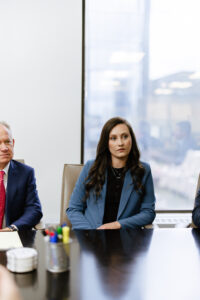
Attorney Jessica Wieczorkiewicz will continue her leadership with the American Association for Justice.
Get to know the American Association for Justice
The American Association for Justice was founded in 1946 as the National Association of Claimants’ Compensation Attorneys (NACCA). As a nonprofit association of plaintiff trial lawyers, it helps attorneys connect, share resources, and work together to improve the legal system and court rules.
The AAJ not only includes plaintiffs’ lawyers, but also legal professionals, law students, paralegals, and scholars from around the world. In addition to connecting those working for plaintiffs’ rights, it also lobbies to protect the right to a fair trial by opposing forced arbitration and jury trial waivers.
What does AAJ do?
AAJ offers a variety of trial advocacy resources and programming nationwide. It advocates for the rights of trial lawyers and plaintiffs under court rules, administrates events to connect legal professionals, and provides attorneys with continuing education. It also provides crucial real-time information for attorneys, law students, and the general public.
Through a wide range of caucuses, committees, and initiatives, AAJ ultimately focuses on building the capacity of trial lawyers and protecting the democratic values of the civil justice system. AAJ is dedicated to fighting for the rights of anyone who has been injured by misconduct or negligence to seek justice—even against the most powerful interests in our society.

Promoting excellence in the New Lawyers Division
The New Lawyers Division (NLD) organizes members of the American Association for Justice who have been practicing for less than 10 years or who are younger than 35. Serving more than 4,000 individuals, the division helps those relatively new to the legal field expand their education, serve their community, connect with other trial lawyers, and fundraise for important causes.
In 2023, Wallace Miller attorney Jessica Wieczorkiewicz was appointed as co-chair of the NLD’s Education Committee. This committee provides crucial services in the operation of the NLD, including organizing education for members through webinars and events featuring expert speakers.
We are proud that Jessica has not only been re-appointed as co-chair of the committee for 2024, but also received an Excellence Award at the AAJ’s Annual Convention in July. “The association provides a platform and community for experience and knowledge to be shared—everything from trial tips to substantive legal updates, to overall practicing as a plaintiffs’ attorney and navigating this career,” Jessica says. “This is really important work and I’m excited to jump into it again for this next bar year.”
As co-chair of AAJ’s NLD Education Committee, Jessica will continue to build the organization’s education efforts. In late October, she traveled to San Juan, PR for the AAJ NLD Membership Drive in order to grow participation in AAJ and connect to other young lawyers fighting for a fair justice system.
Meet Jessica Wieczorkiewicz
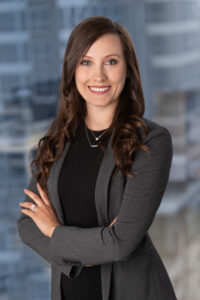
Attorney Jessica Wieczorkiewicz.
Through her work in mass tort, product liability, and personal injury litigation, Jessica works to hold companies and institutions accountable when they don’t act in the interest of the common good. She was honored as an Illinois Super Lawyers Rising Star from 2023 to 2025 and a Best Lawyers: Ones to Watch® in America in 2025.
In addition to her work with AAJ, Jessica works closely with the Women’s Bar Association of Illinois (WBAI) and the Advocates Society, an association of Polish American attorneys. Jessica is also a member of the AAJ Law School Committee, which works with law students to increase engagement in plaintiff advocacy.
She was recently appointed to the Steering Committee of the ongoing multidistrict litigation against the manufacturers of the drug Suboxone. To learn more about Jessica, listen to her interviews on WGN’s Let’s Get Legal discussing Suboxone and Paraquat or find out more about her path as a litigator here.
Learn more about your legal team
We’re proud to stand up for the rights of victims—in our cases, in our advocacy, and in our involvement with organizations like the American Association for Justice. Please join us in congratulating Jessica on her Excellence Award and her continued work as a committee co-chair with the AAJ, and stay tuned on our blog for more news on how we’re working to advocate for an equitable justice system for everyone.

From left to right: Timothy E. Jackson, Jessica Wieczorkiewicz, Nicholas P. Kelly, Molly Condon Wells.
Race Judicata 2024
Joining the Chicago Community to Run for Justice
For the past 28 years, the legal community in Chicago has come together at Race Judicata to run (or walk) a 5K, celebrate with a live band, and raise money for Chicago Volunteer Legal Services (CVLS).
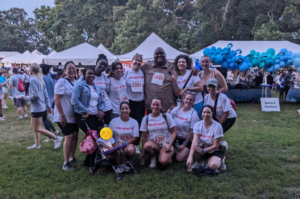
A cohort from Wallace Miller was proud to participate for the first time this year. Together with the Chicago legal community, our firm raised over $20,000 to support the CVLS’s mission to provide vital legal services to those unable to afford them.
Legal representation for everyone
Founded in 1964, Chicago Volunteer Legal Service (CVLS) is the oldest provider of free civil aid in the city. The organization connects more than 2,300 volunteer attorneys from almost a thousand law firms and other organizations to low-income Chicagoans who couldn’t otherwise afford legal aid.
The mission of CVLS is to make sure the law works for everyone, regardless of their ability to afford a lawyer. Through their pro bono work, they offer representation in everything from bankruptcy to eviction to immigration via online services and 19 legal clinics around Chicago. 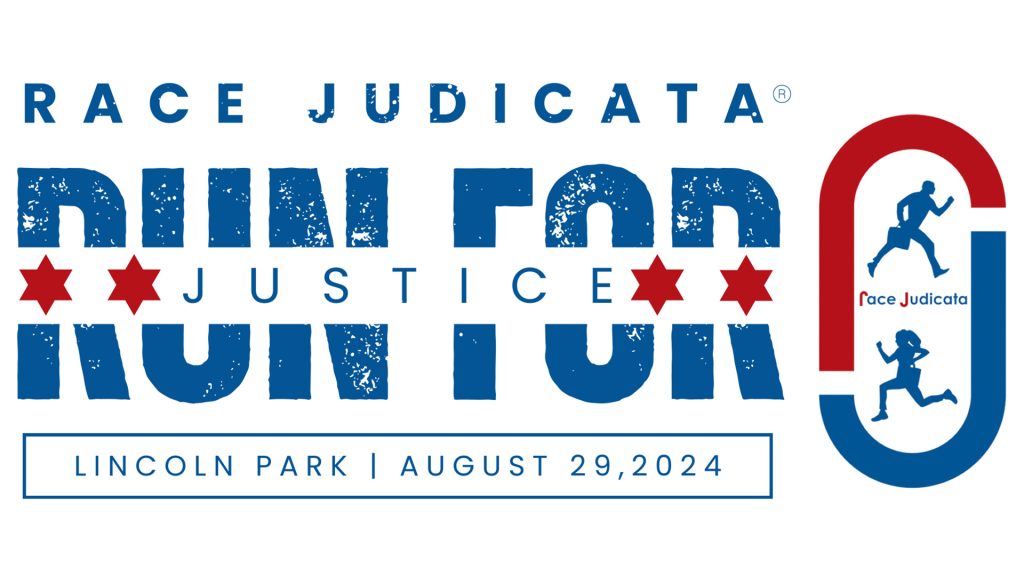
Running for justice
The funds raised by Race Judicata go directly to CVLS’s general operating costs. By helping to fund their extensive online and in-person resources, the event mobilizes Chicago’s legal community to connect legal services with those who need them.
More than 120 law firms, associations, and other organizations attended Race Judicata on August 29. The crowd included lawyers and legal teams from all areas of the legal field as well as representatives from organizations including the American Immigration Lawyers Association, CARPLS, the Illinois State Bar Association, the Exoneration Project, and the Workers’ Compensation Lawyers Association.
On the very humid late summer night, law firms set up tents, provided food and drink, entered the t-shirt design contest, and prepared for the 5K. The route—run and walked by more than 3500 participants from the legal community—looped through Lincoln Park to Diversey Harbor and back (check out the results and the entries to the t-shirt contest at the event page).
After the race, our team connected with legal colleagues, opposing counsel, and friends old and new while we enjoyed music from the live band. The event was a chance not only to help CVLS raise money for their pro bono legal aid, but also to reaffirm the mission of Wallace Miller—to stand up for the rights of those who suffer from unfair systems and make sure the law benefits everyone.
Our team believes that together, we can work for a more perfect legal system. The law should not be out of reach for anyone—that’s why we operate on a contingency fee model that ensures none of our clients pay anything unless we win their case. Learn more about the mission of CVLS at their website, and stay tuned to hear more about what Wallace Miller is doing to work for justice in our community.
Meet Nicholas P. Kelly
Join us in welcoming Nicholas P. Kelly to the firm
Nicholas P. Kelly joined the Wallace Miller team in 2023. With a background in litigating car crashes, workplace accidents, premises liability, medical malpractice, and wrongful death cases, he focuses on protecting people’s rights.
 How did you decide you wanted to be a lawyer?
How did you decide you wanted to be a lawyer?
I have always loved to read, write, and tell stories. I like to argue, and I like to think about things critically.
What is the most interesting thing about practicing law?
I love litigation. I don’t know if it has always been this way for me. Law school was intense—I didn’t have any lawyers in my family, so I had no idea what to expect going into law school. At the outset of my career, I was green and still trying to discover who I wanted to be as a litigator. At some point, maybe a year in, I developed a style, became comfortable, and fell in love with the practice.
I’m passionate about plaintiff-side personal injury litigation because it’s morally gratifying. We’re fighting big insurance companies and corporate giants who dominate the world we live in. I’m fighting on behalf of regular people, whose lives have often been upended and irrevocably harmed, through no fault of their own, by the negligence of another – against companies who prioritize profits over the safety, health, and wellbeing of the public.
Every single case has creative, competitive, and performative components to it. When you’re working up a case, you have the evidence and the facts, and your job is to put together the full picture and bring out the truth. Asking good deposition and exam questions or being able to work with difficult witnesses is a skill set that takes years to develop. I spend a lot of time reading Trial Guides books, attending continuing legal education classes, and thinking about my cases with an aim toward—almost an obsession with—being the best attorney I can be for my clients.
What has your experience been like at Wallace Miller?
We’ve got a really solid team comprised of individuals who are smart and compassionate and who care about what they’re doing. And I mean that sincerely. From the top down, the partners and associates are incredibly talented, and they have their accolades behind them and they’ve got a rich history of success. Everybody is coming to the table with unique skill sets.
We’re not the stereotypical law firm. Our staff is full of tech-savvy, smart, creative people. I’ve loved working with the whole team—everybody works hard, works well collaboratively, and does a great job.
What advice would you offer people about personal injury claims?
One thing that I think people need to know is that if you’re injured in a car accident or if you slip and fall inside a store, people can sometimes feel a certain reluctance to pursue a lawsuit or a claim because they don’t want to go after another person individually. And the reality is that you’re almost always effectively going after their insurance companies. These are multibillion-dollar companies who advertise aggressively, scare the hell out of us, take our premiums each month, invest those premiums in the market, and then have the audacity to deny our claims when we need them most. They’re making money hand over fist in a multitude of ways, and they make a practice of denying claims and delaying claims to make it difficult for people to get what they need to get back on their feet. There are some attorneys out there who practice unscrupulously. But at Wallace Miller, we care about what we do, and we care about our clients. Ultimately, we’re here to help people.
Understanding What We Do: What Is Plaintiff Litigation & Why Is It Important?
What is litigation?
In legal terms, litigation is resolving disputes via the public court system. Any legal proceeding—whether that is a criminal lawsuit, a civil lawsuit, or a bankruptcy case—is a type of litigation.
Although often used interchangeably, litigation is not the same as a lawsuit. The term litigation refers to resolving disputes via the legal system, while a lawsuit is the specific legal action brought by a plaintiff against a defendant. For example, in the context of mass torts, each individual plaintiff has their own lawsuit. But each lawsuit is part of a larger litigation about the same alleged defective product or wrongful conduct.
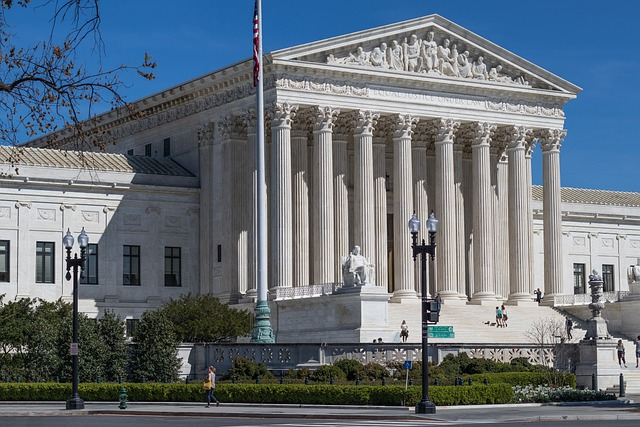
The U.S. Supreme Court building in Washington, DC. Photograph by Pixabay.
The U.S. court system is divided into federal and state courts. Federal courts, which include the Supreme Court, the courts of appeals, and the District Courts, oversee cases concerning federal law, disputes between states, constitutionality, bankruptcy, and other country-level concerns.
While the setup of state courts depends on the state, they generally include a state supreme or high court, a court of appeals, and a variety of trial courts. They oversee suits, including most criminal cases, tort or personal injury cases, family law cases, and cases involving state laws or constitutions.
In the State of Illinois, most cases begin in the 25 judicial circuits (also known as trial courts) across the state. Appeal cases proceed to the Appellate Court, which is divided into five districts. The Illinois Supreme Court, which consists of seven justices, provides the final judgment on state law. Look up the organization of your state’s court system here.

The U.S. District Court for the Northern District of Illinois is the third-largest district court in the country. Photograph by Carol Highsmith, U.S. States District Court website.
Understanding legal terms
Both criminal and civil cases involve a plaintiff (or suing party) and a defendant (or party responding to the complaint). In a civil case, the plaintiff is the person filing the lawsuit, while the defendant is the party against whom the suit is filed. Plaintiffs bring lawsuits in civil court because they believe they have been harmed by the defendant physically, financially, or otherwise.
Defendants can be business interests, individuals, hospitals, insurance companies, nonprofits, or government organizations. In some cases, many plaintiffs claim that the same defendant or group has harmed them. Cases like these may be filed via a class action lawsuit or consolidated into a mass tort.
Criminal Cases

Photograph by Pixabay.
Criminal cases operate differently from civil cases in several ways. The plaintiff in a criminal case is the State representing the victim (often called “The People” in official documents). At the same time, the defendant is the person or organization being accused of a crime.
Civil and criminal cases also differ in how they handle the burden of proof, how much evidence is required to prove wrongdoing, and who is responsible for providing it. In a criminal case, the State must prove beyond a reasonable doubt that the defendant committed what they are being accused of. In a civil lawsuit, on the other hand, the plaintiff and the plaintiff’s lawyer must provide a preponderance of evidence—meaning showing that something is more likely true than it is not true—to prove that the defendant is at fault. This usually means it is easier to meet the burden of proof in a civil case.
Why is the plaintiff important in the law process?
Under our legal system, individuals can seek compensation for damages. These damages may include physical harm, medical expenses, loss of wages, or emotional distress, and lawsuits can also be filed for people who died due to harmful actions.
Plaintiffs sue for financial compensation, but that’s not all there is to it. Many plaintiffs file claims not only to be compensated for the wrong done against them but also to find answers and prevent the same thing from happening to others.
At Wallace Miller, we understand that there is more than money at stake in these cases. When someone suffers harm due to fraud or negligence, they often feel ignored, disrespected, or erased. Through the legal process, our attorneys can help plaintiffs pursue justice, achieve some measure of recompense, and prevent the harm from happening again.
What is a plaintiff’s attorney?
A plaintiff’s attorney, or plaintiff’s lawyer, is simply the individual representing the plaintiff. However, the term is commonly used to refer to an attorney who specializes in representing plaintiffs’ claims against larger interests such as insurance companies, corporations, or hospitals.

Photograph by Pixabay.
Wallace Miller focuses on this area of the law to make a positive difference in the lives of those who have been wronged. By taking on cases in consumer protection, product liability, employment, environmental and toxic harm, and personal injury, we protect the rights of victims of negligence, fraud, and other wrongdoing.
The defense attorney or the individual representing the party being sued is on the other side of the lawsuit. The term is also often used for lawyers who specialize in representing defendants. Large companies may have a team of defense attorneys on staff responsible for handling suits brought against them.
How do plaintiff’s attorneys get paid?
Because they are bringing the suit, plaintiffs and plaintiffs’ attorneys are the active parties in beginning a claim. Depending on the nature of the case, plaintiff lawyers are often paid via a contingency model, meaning they don’t charge their clients anything during the legal process. In these circumstances, the attorneys initially pay out-of-pocket all necessary litigation expenses—including travel expenses for deposition, expert reviews and analyses, testimonies, documentation, records, and court filing fees. Then, if a settlement or verdict is awarded, the attorneys are reimbursed for those expenses and receive a percentage of the award amount as their fee. If a plaintiff doesn’t receive compensation, the attorney doesn’t get paid, and they do not get reimbursed for the expenses they paid out-of-pocket on the case.
This means that the plaintiff’s attorneys take a financial risk in filing lawsuits. Experienced attorneys are experts at assessing the risk of a given claim and can help the plaintiff understand the situation accurately. Still, there is never a guarantee of a positive case outcome. This system allows average people to access the justice system without paying expensive attorney fees upfront.
What is the role of a plaintiff lawyer?
In a civil case, the plaintiffs’ lawyers are responsible for representing the plaintiff(s) and fighting for justice on their behalf. Their end goal is to help the plaintiff receive compensation for damages caused by the defendant(s).
During this process, they research the plaintiffs’ specific situation and the case in general. They build plaintiff files, gather and present convincing evidence, retain expert witnesses, and prepare documents for the court.

Photograph by Pixabay.
Many cases settle out of court, and in these situations, the lawyer’s goal is to achieve the best compensation possible for their clients. The plaintiff’s lawyer may represent the individual in court if a complaint goes to trial before a judge and jury.
On a societal level, plaintiffs’ lawyers can also use their skills to hold powerful parties accountable. When the actions of a person, corporation, nonprofit, or government organization cause harm to a large number of people, plaintiffs’ attorneys may represent them in a class action or a mass tort. This not only allows the people harmed to receive some compensation but also discourages these organizations from committing the same harmful actions in the future.
Wallace Miller: Your plaintiff lawyers
We know that you have many options when considering a legal claim. Our passionate attorneys and professionals have dedicated their careers to pursuing challenging cases and fighting on behalf of consumers, individuals, classes of people, and small businesses against some of the largest companies in the world.

Left to right: Nicholas P. Kelly, Edward A. Wallace, Molly Condon Wells, Mark R. Miller, Jessica Wieczorkiewicz, Timothy E. Jackson.
The attorneys at Wallace Miller have more than 75 years of cumulative experience in the law and have won millions in recovery and settlements. Our firm is nationally recognized, and we are frequently appointed by federal and state courts to serve in leadership positions. Most importantly, we are committed to obtaining justice for each and every one of our clients.
If you think you may have a claim against a business, corporation, organization, or any other group or would like to discuss your options, reach out to our firm today at (312) 261-6193 or fill out our online questionnaire for a free and confidential assessment in minutes.
Related Posts
